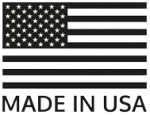Locator Denture Attachments: Types, Compatibility, and Best Practices
Missing teeth can seriously affect your confidence, speech, and ability to enjoy your favorite meals. Luckily, locator denture attachments offer a reliable and comfortable way to stabilize dentures and improve your quality of life. But what exactly are they, and how do they work?
Let’s walk through the types, how they’re used, and why locator denture attachments have become a top choice for both patients and dentists.
Why Are Attachment Systems Important?
Attachment systems are connectors that hold removable dentures securely on top of dental implants. If you’ve ever had loose dentures, you know how annoying and even embarrassing it can be. These systems add retention for removable prosthetics, making your dentures feel more natural and secure.
There are several types of overdenture attachments commonly used today:
- Locator attachments (the most popular)
- Ball attachments
- Bar attachments
Each has its pros and cons, but locator denture attachments stand out for their versatility and ease of use.
2. What Are Locator Denture Attachments?
Locator denture attachments are small but powerful components that allow a denture to snap onto dental implants. Think of them like seatbelt clicks — strong, safe, and easy to manage.
Key elements include:
- A male nylon cap inside the denture
- A female abutment secured to the implant
- A housing that connects both parts
When you place your denture, the cap locks onto the abutment, creating a secure fit while still allowing for removal.
These attachments are compatible with a wide range of implant attachment systems. Whether you have Straumann, Nobel Biocare, or another brand, there’s likely a locator denture attachment that works for you.
3. Top Benefits of Locator Attachments
So why are locator denture attachments preferred over other types?
Here’s why patients and dentists love them:
- Excellent retention and stability
Dentures stay in place during eating, talking, or laughing. - Low profile
Requires minimal vertical space — ideal for patients with bone loss. - Durability and flexibility
Designed to handle daily wear with replaceable nylon inserts. - Easy maintenance
Components can be replaced without major procedures.
These features make them especially useful for people with atrophied jaws who may not be candidates for more complex solutions.
According to the American Dental Association, dental implants can significantly improve prosthetic retention and patient satisfaction.
4. Compatibility with Implants and Dentures
One of the biggest advantages of locator denture attachments is their broad compatibility with different implant systems and denture types. Whether you have two implants or a full arch, locator attachments can adapt to your needs. They are designed to fit most major implant attachment systems, including Straumann, Nobel Biocare, BioHorizons, Zimmer, and more. This means that whether you’re getting new implants or upgrading an existing denture, there’s a high chance you can use locator attachments without needing to replace everything. Their low-profile design also makes them ideal for patients with limited vertical space, especially when bone resorption is a concern.
Locator systems are also highly compatible with modern CAD/CAM-designed prosthetics. That means your dentist or lab can create a precise, digitally customized denture that fits perfectly with your locator abutments. This level of accuracy reduces the risk of pressure points and makes daily wear much more comfortable. In fact, many dental professionals are now using digital workflows to plan, design, and fabricate overdentures with locator attachments to improve long-term success. With this combination of flexibility and precision, it’s no wonder locator denture attachments are considered the gold standard for retention for removable prosthetics.
5. Installation and Maintenance Tips
Even the best system needs proper handling. Here are a few key things to know:
Common dental lab tips:
- Always check implant angulation before selecting your attachment system
- Use torque wrenches for abutment installation to avoid screw loosening
- Replace worn-out nylon caps regularly for best retention
Common mistakes to avoid:
- Using mismatched components (different brands may not align)
- Not educating the patient on hygiene and cleaning
- Ignoring the need for regular follow-ups
When placed and maintained correctly, locator denture attachments can last for years with minimal issues.
6. Custom Locator Attachment Kits from Bio-Dent
If you’re looking for trusted solutions, Bio-Dent offers high-quality locator denture attachments tailored to your implant system.
You can order:
- Custom-matched kits for your implant platform
- Spare parts (nylon inserts, housings, abutments)
- Technical support to assist with compatibility questions
Whether you’re starting fresh or upgrading a current denture, Bio-Dent makes the process simple.
Learn more about our locator attachment offerings and contact us here.
Is a Locator System Right for You?
If you want better retention, fewer adjustments, and a more confident smile — locator denture attachments might be the best option.
They’re especially great for:
- People frustrated with loose dentures
- Patients with bone loss who want a low-profile solution
- Anyone looking for a simple, effective upgrade
Still not sure? Talk to your dentist or get a consultation with a dental specialist who works with implant attachment systems.

